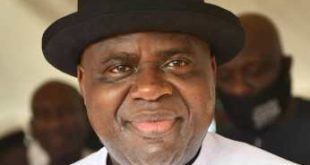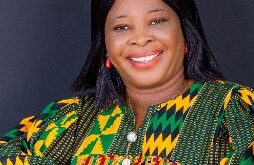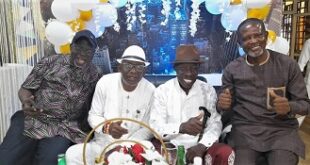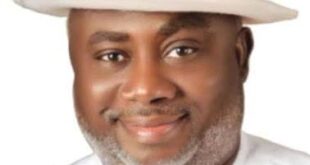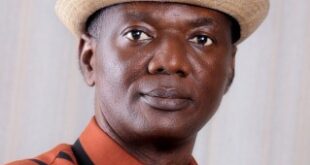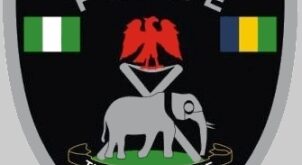By: Amos Odhe. Bayelsa State Governor, Senator Douye Diri, on Thursday, urged media practitioners in …
Read More »-
Diri Tasks Media Practitioners on Development Journalism
-
Climate Change: Activists seek Court’s Opinion on African Countries’ Human Rights Obligations
-
Abia Environmentalist, Onyeizu Crowned Master Yam Farmer, Mentors New Generation
-
Abia Governor Hails Rev Uduma on 30 Years of Priesthood
-
IHRHL Wants National Plan on Climate Change Domesticated by Councils, States
-
Sustain Support For Wike, INC Tells PDP Caretaker Chairman
… Ijaws can’t Save Eggs in one Basket ~ Okaba By Amos Odeh, Yenagoa …
Read More » -
Bayelsa PDP: Caretaker Committee Mulls new Secretariat, set to Receive Defectors
-
Protests Against Sole Administrator Undermining Reconciliation Process In Rivers – APC
-
NLNG Unveils Scheme, VIBES, to Empower, Mentor Youths in 110 Rivers Communities
Nigeria’s gas company, NLNG, has relaunched one of its key economic empowerment programme, formerly …
Read More » -
Onne: Reps Committee Scores Babandede High on Revenue Generation, Anti-Smuggling
-
IPMAN urges FG to ensure Port Harcourt, Warri, Kaduna refineries work optimally
-
46 Hearty Cheers to A Man With Heart of Gold
By Tunde Uchegbuo Today, April 15, 2025, we celebrate the birthday of a remarkable …
Read More » -
Rivers Monarch’s Son, Chimankpam Weds Heartthrob in Style
-
SLAP Africa to Train 50,000 Youths on Cinematography
-
Diri Appoints Asu Ekiye, Gospel Artiste, ‘Ijaw Language Ambassador’
-
Ezenwafor’s New Book, ‘Done Over Perfect,’ Challenges Nigerians to Embrace Progress Over Perfection
-
NSF2025: Gov Diri Receives National Sports Festival Torch of Unity
Bayelsa State Governor, Senator Douye Diri has received the Torch of Unity from the National …
Read More » -
Women’s Prosperity Cup: Defending Champions Crash Out, As Kpansia Venue Takes Centre Stage
-
Cole, Wokoma Mourn Ex-Super Eagles Coach, Chukwu
-
Ikenna Okafor, Pillar of Sports in Rivers ~ Okonkwo
-
Igali Lauds Team Bayelsa as N’Delta Sports Festival Ends
-
Police Arrest Suspected Killer of Gov. Diri’s Inlaw, Traditional Ruler in Bayelsa
By : Odeh Okioma, Yenagoa. The Bayelsa State Police Command says it has arrested killers …
Read More » -
Evwreni Odion’rode Starts Reconciliation Process At Unenurhie Community
-
NEWLY ELECTED UNENURHIE EXCO HOLDS MAIDEN NEC MEETING, CALLS FOR SUPPORT.
-
Diri Solicits FG’s Partnership For Development of Agge Deep Seaport
-
Fubara’s Supporters Walk-Out On Mrs Ibas As Tinubu’s Wife Empowers Rivers Women
-
Again, PDP in Denial Aftermath of Members’ Exodus to APC
By Ehichioya Ezomon The entire leadership of the opposition Peoples Democratic Party (PDP) …
Read More » -
Joshua Maciver: A Quintessence of Humility and Simplicity
-
Omo-Agege, Nwoko’s Failure to stop Oborevwori, Okowa’s Defection to APC
-
Why Is Niger Delta Besieged?
-
Udenwa’s Indictment of Politicians, Blame of PDP’s Woes on APC
 PH Mundial – Port Harcourt Online Newspaper News Across The Region
PH Mundial – Port Harcourt Online Newspaper News Across The Region

